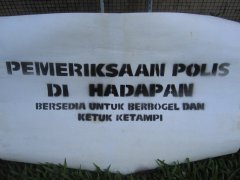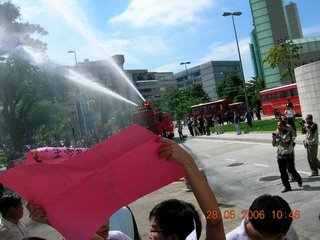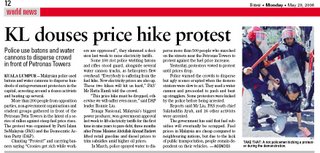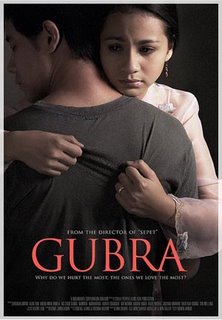 Apparently, the Police published a 12 page report on their website which contents included some strident comments how the Police Force rejects the notion of the Independent Police Complaints and Misconduct Commission.
Apparently, the Police published a 12 page report on their website which contents included some strident comments how the Police Force rejects the notion of the Independent Police Complaints and Misconduct Commission.
An article in NST Online provides some background on the report.
The document apparently starts off with reasons why the police rejects the IPCMC. The document stated that the establishment of the IPCMC was...
"unconstitutional, prejudicial to national security and public order, victimised the people, and could cause a state of anarchy which would undermine the ruling coalition's power".
Being the layman that I am, I fail to see how the establishment of an independent commission to look into the misconduct of the police force is unconstitutional or prejudicial to national security or public order. The police are supposed to uphold the constitution, not hold themselves above it. If the constitution allows for the formation of such a body to oversee the police force, and the people via the parliament so desire it... what is the issue?
How is it prejudicial to national security and public order? In case the senior policemen have forgotten, the powers of the police are given by the laws of the land. And what the law giveth, it may taketh away. So as long as the police conduct their duties within the ambit of the law, again, what's the issue? Who is being victimised? Are they imply that the police currently maintain national security and preserve public order by breaking the law themselves
This last one's unacceptable.
The IPCMC could cause a 'state of anarchy which could undermine the ruling coalition's power'.
Since when is it the police's job to maintain the ruling coalition's power? The police are supposed to apolitical and serve the country and uphold its laws. Why does it care which party is in power? Maybe it's about time that the IGP start reporting to the parliament, rather than the Minister. I hope that this is just a slip of the tongue, and the report meant to imply that the 'ruling coalition' is actually the government of the day, whoever that may be and duly elected by the people that police force is entreated to serve.
Police personnel further objected to the setting up of the commission because:
- It undermined the IGP's administrative and enforcement power;
I envision that the commission will help promulgate some guidelines for the police force where the current standing orders are vague, or are not sufficiently supported by the country's laws. In no way, do I see the commission interfering with the operations, administration and work of police personnel.
- The scope of "misconduct" was too wide and would complicate the routine duties of police
The definition of misconduct is neither wide nor narrow. It's merely misconduct or not. The police are supposed to operate and conduct themselves within the ambit of the law and the powers provided to them by such law to carry out their duties. Unless the current routine duties of the police contravene the law, the force's modus operandi would not change. Where is the issue?
And from the nude squat case, claims of police brutality during interrogation and detention, and the recent police / FRU (Federal Reserve Unit)'s heavy handed (footed)
action against the price hike demonstrators in front of KLCC, it is fairly clear that some revamp of the force's standing orders and procedures are required. And the commission will be essential to this effort.
- The formation of IPCMC would mean that other bodies such as the Police Force Commission, Anti-Corruption Agency, Human Rights Commission of Malaysia, Attorney-General's Chambers, Public Complaints Bureau and the Internal Security Ministry had failed in the discharge of their duties.
EXACTLY!We cannot sidetrack the IPCMC just because we don't want to offend these agencies. And judging by the current state of affairs... don't you think that at least some aspects their duties may not have been discharged to their fullest extent? I think that the 'possibility' that some of these agencies may have failed in their responsibilities makes the establishment of the IPCMC even more important
An earlier blog about the
Police's Lost Code of "Bersih, Cekap and Amanah" might interest you at this juncture.


















